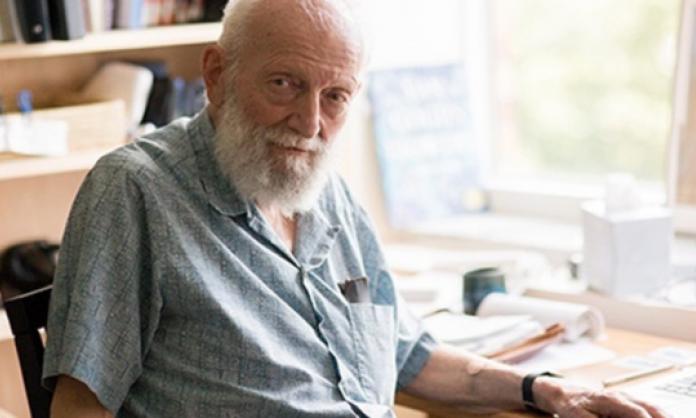Richard Levins, who had a lifetime history of left wing involvement in science and its politics, died on 19 January.
A “red diaper baby”, as those born to Communist Party members became known, Levins wrote, “When I was a boy I always assumed that I would grow up to be both a scientist and a red”.
In later life, he would author (along with long-time colleague Richard Lewontin) The Dialectical Biologist and Biology under the Influence: dialectical essays on ecology, agriculture and health, as well as making many path-breaking contributions in fields from community ecology and evolutionary theory to mathematical biology, public health and the philosophy of science.
He grew up in a left neighbourhood in Brooklyn, where schools were empty on May Day, and science, politics and culture were part of discussions on the street and “the bread and butter of mealtime conversations”. Marrying Rosario Morales, a Puerto Rican poet and activist in the 1950s, drew him further into activism in Latin America, which, with his membership of the Communist Party and decision to walk out of the notorious House Un-American Activities Committee, led to him being blacklisted and spending a decade in exile in Puerto Rico.
FBI agents ensured he got no work there, so he ended up farming, an experience that brought him into contact with Communist Party and peasant farmer activists.
He returned to the US, but not just to work on his PhD on evolution. Caught up in the explosion of activism in the 1960s and 1970s that, in part, he saw as challenging the role of universities in class rule, he also joined Science for the People, a group of “scientists dedicated to vigorous social and political action”.
Reporting on one of their first activities, Science for the People activists told of showing films of interviews with Black Panther Bobby Seale as an alternative to the science sessions at a major conference.
Levins argued that in a world where “science is intellectually dominated by the bourgeoisie, it becomes necessary to confront bourgeois theory, to transform, negate, use and battle against it”.
He met the ideas of Marx and Engels partly through British Marxist scientists J.B.S. Haldane, J.D. Bernal, Joseph Needham and others. A class-based and dialectical view of nature and society remained the underpinning of his research, acting as a counterweight to the prevailing class bias and reductionism of bourgeois science. In the field of evolution, he demonstrated how class society strongly influences how natural processes such as evolution work because class decides who gets diseases, who eats, who does physical work, who washes the dishes and how long we live. Failing to take class division into account is not just bias, he pointed out, but distorts our whole understanding.
Levins maintained his political stance to the end, wearing a Black Lives Matter badge, though he could no longer take to the streets. Some of his rage against the system spills out in this 1979 quote – and is a fitting way to end this tribute:
“Exploitation kills and hurts people. Racism and sexism destroy health and thwart lives. Studying the greed and brutality and smugness of late capitalism is painful and infuriating. Sometimes I have to recite from Jonathan Swift:
Like the boatman on the Thames
I row by and call them names.
Like the ever-laughing sage
In a jest I spend my rage
But it must be understood
I would hang them if I could.”





